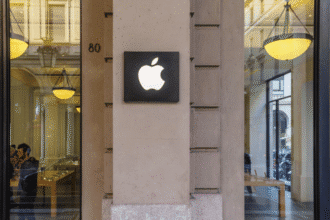Retail behemoth Next CEO Lord Wolfson has cautioned that new tax provisions in the Budget will make it “harder for people to enter the workforce.” He was worried that the retail industry would be severely hurt by the changes, especially the increase in business-paid National Insurance, which would particularly harm entry-level positions. Businesses and employees alike may face serious difficulties as a result of the National Insurance increase.
- What Effects Will Tax Changes Have on Entry-Level Positions?
- How Will Retailers Be Affected by the Wage Bill Increase?
- What Impact Will the Living Wage and National Insurance Increase Have on Low-Paid Workers?
- Will There Be Fewer Job Opportunities as a Result of These Changes?
- How Is the Budget Measures Supported by Treasury?
- What Effects Will This Have on High Street Jobs and Retailers?
- What Effects Will the New Workers' Rights Bill Have on Stores?
- How Can One Increase Business Confidence, According to Lord Wolfson?
- In conclusion
What Effects Will Tax Changes Have on Entry-Level Positions?
Lord Wolfson clarified that the retail sector would be greatly impacted by the rise in company National Insurance premiums. He said, “The axe has fallen particularly hard on entry-level jobs,” highlighting that people in part-time or lower-paying occupations would be most affected.
According to Lord Wolfson, companies would face more pressure as a result of the government’s decision to raise National Insurance starting in April and lower the threshold at which they must begin paying it, from £9,100 to £5,000. This coincides with the National Living Wage, which is expected to increase at a rate twice as fast as inflation. Without a doubt, the industry will be greatly impacted by the National Insurance hike.
How Will Retailers Be Affected by the Wage Bill Increase?
Next, which has thousands of employees, is anticipating a £70 million increase in wages as a result of these adjustments. Lord Wolfson cautioned that the business will probably have to cut staff hours in order to cover these increased expenses. “This means fewer workers or fewer hours per employee,” he stated.
Instead of enacting the reforms all at once in April, he urged the government to spread them out over time. “The speed at which it is going to happen, the lack of consultation, that is the problem,” said Lord Wolfson. A more progressive approach, in his opinion, would enable companies to adapt without having to reduce employment or working hours. With the National Insurance hike looming, retailers are particularly concerned about how to manage their workforce effectively.
What Impact Will the Living Wage and National Insurance Increase Have on Low-Paid Workers?
Lower-paid workers are especially affected by these tax increases. According to Lord Wolfson, a part-time employee receiving the National Living Wage would see an increase of roughly 6.5% in National Insurance, but a high earner earning £60,000 annually would see an increase of only 2%.
Lord Wolfson said, “This is where the pain is going to be felt the most,” emphasizing the disproportionate impact on entry-level jobs, which usually depend on employees making minimum or nearly minimum pay. These workers will be greatly impacted by the National Insurance hike, which will make it more difficult for them to find steady, reasonably priced work.
Will There Be Fewer Job Opportunities as a Result of These Changes?
Lord Wolfson’s worries are not limited to the retail industry. He worries that those looking to enter the workforce may find fewer job prospects as a result of the National Insurance hike. “It’s very difficult to see how such a big increase in the cost of entry-level work is going to result in anything other than a reduction in the number of opportunities available,” he stated.
He added that applications for seasonal Christmas positions at Next had already increased significantly, by 50% over the previous year. He expressed concern that the rising expenses will hinder the creation of entry-level jobs, saying, “It’s going to be harder and harder for people to enter the workforce.”
How Is the Budget Measures Supported by Treasury?
More than half of companies would experience a decrease in their National Insurance rates, or no change at all, according to a Treasury official who responded to Lord Wolfson’s criticism and supported the government’s stance. They said that by taking steps like restricting the company tax rate and setting up a National Wealth Fund, the government was laying the groundwork for sustained economic growth.
Although many UK businesses have voiced concerns about the rising costs of conducting business, which they argue could undermine these objectives, these measures are part of a larger attempt to enhance economic growth. For instance, according to the British Chambers of Commerce, business confidence has “slumped,” and many companies were preparing to hike prices in order to deal with rising taxes and costs.
What Effects Will This Have on High Street Jobs and Retailers?
Concerns regarding the effects of the Budget are not limited to Lord Wolfson. Businesses warned that high street job losses were “inevitable” as a result of rising wages and tax expenses in a letter to Chancellor Rachel Reeves signed by major UK retailers, including Next. Retailers also anticipated that store closures would result from pricing increases.
Second, its enormous staff, which mainly relies on part-time workers, makes it especially vulnerable even though it made over a billion pounds in profit last year. Although he acknowledges that the government must raise taxes, Lord Wolfson acknowledged that the speed and lack of engagement around these reforms are causing needless pain.
What Effects Will the New Workers' Rights Bill Have on Stores?
Concerns over a proposed workers’ rights law that would provide more protection against wrongful termination and allow workers to request a guaranteed hours contract based on the number of hours worked over a given period of time were also raised by Lord Wolfson, in addition to tax and wage concerns.
Lord Wolfson cautioned that although these steps are meant to safeguard employees, they may present problems for merchants, particularly during busy times like Christmas. “In the days leading up to Christmas, we give our employees more hours. It would be impossible for us to do so at all if the law requires those hours to be permanently enforceable under the contract,” he clarified.
How Can One Increase Business Confidence, According to Lord Wolfson?
Additionally, Lord Wolfson recommended that the government concentrate on increasing internal efficiency. “The government has hired 100,000 more civil servants in the past five years. Spending more than 40% of GDP on the public sector is unsustainable. It must be made more effective,” he stated.
He thinks that any tax reforms may not have as much of an effect on increasing corporate confidence as the government’s commitment to cutting public sector inefficiencies. “If the government can commit to doing that – and deliver it – then I think that will do more for business confidence than anything else,” said Lord Wolfson.
In conclusion
Businesses, particularly those in the retail industry, are still worried about the effects of rising taxes and the higher expense of hiring low-paid workers as the UK government proceeds with its budget measures. The retail industry cautions that these reforms may result in fewer job prospects for new workers and more closures and job layoffs, even as the Treasury defends the measures as essential for maintaining economic stability. Businesses’ ability to withstand these changes or if they must make tough choices regarding staffing levels and hours will probably be determined over the course of the next few months. It is anticipated that the increase in national insurance will remain a major concern for both companies and employees.








